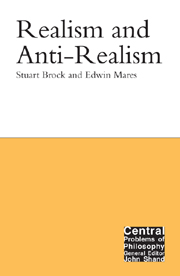12 - Fictional characters
from Part II
Summary
It is a commonplace that fictional characters such as Sherlock Holmes are not real. If you ask a non-philosopher whether or not Holmes really exists, you will be told either that he does not, or that he exists “in our minds”. However, a number of philosophers defend a position at odds with common sense, and in recent times this number has been growing. According to these philosophers, if a story of pure fiction tells us that an individual exists, then there really is such an individual. According to these realists about fictional characters, “Sherlock Holmes”, “Scarlett O'Hara”, “Charlie Brown”, “Sonic the hedgehog”, “Batman”, “Superman”, “Tweedledum” and “Tweedledee” are not denotationless terms, but names that refer to individuals who exist “outside” our minds.
Realism about fictional characters
Although they differ on many details, all realists about fictional characters accept the following two theses:
Ontological thesis: There are fictional characters. A fictional character is an individual (or role) picked out by a name or description that (i) is first introduced in a work of fiction, and (ii) does not pick out a concrete individual in the actual world.
Objectivity thesis: Fictional characters do not depend on anyone's attitudes, linguistic practices or conceptual schemes. Fictional characters would continue to exist (or be) even if there was nobody to think or talk about them.
The ontological thesis does three important things. First, it tells us that fictional characters are referred to through a work of fiction; reference to them occurs by way of writing or telling a story.
- Type
- Chapter
- Information
- Realism and Anti-Realism , pp. 199 - 220Publisher: Acumen PublishingPrint publication year: 2007



